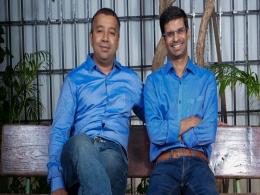The arrival of a child sets off the family on a shopping spree. For every milestone the child attains, be it her first step or her first day at play school, parents and relatives pile on toys and clothes like nobody's business. Besides, parents are almost always knee-deep in gifts that start pouring in from the day of baby shower itself.
However, every single year, most of that stuff is rendered useless. The expensive pram the child refused to sit in more than once, the doll house that cut no ice with the 4-year-old, or the pricey clothes the toddler outgrew in two months flat—sources of grief for parents are many.
This is exactly where Secondcry comes in.
Suvigya, mom to a six-year-old in Bangalore, discovered the platform six months ago. The family had decided to relocate and had tons of toys to sell in a short span of time.
“I managed to sell more than 12 articles in the past few months. The people I interact with for my stuff end up buying more than just my listings on the platform,” she says.
Baby steps
Anjali Goyal and Ankur Jain, IIT-Delhi alumni from the 2008 and 2006 batch, respectively, derived the idea from their own experience.
“A few years after our son Soham was born, we moved to the Netherlands, and had to get rid of a lot of stuff. We had invested so much that we could not let go of it. We had to either resell it or at least give it to someone who would make use of it,” explains Anjali.
The couple started a Facebook group in 2015, where parents would sell/swap their children’s clothes and toys with other members. The group soon swelled to 21,000 parents, and with more than 25-odd transactions happening a day, the couple decided to go the whole hog.
They started with a survey, asking group members about their pain points and things they liked/disliked about the group. Talking to the user base directly helped them build and refine the product.
“The biggest problem was transaction as group members were not comfortable sharing their bank details with a stranger. Plus, delivery was an issue. By forging partnerships and building technology, we now provide shipping across India. This gave our users a lot of comfort regarding shipping and transactions,” Anjali says.
When they started, Anjali and Ankur extracted the listings using Facebook’s application programming interface (APIs) and existing e-commerce platforms. But because the same user can be both a seller as well as buyer, it became challenging to use a ready-made e-commerce platform. Moreover, Facebook kept changing its APIs, making it unreliable. This is when they decided to build their own platform so that user experience is not broken.
The couple launched Priceless Parenting Pvt. Ltd., which runs Secondcry, earlier this year. It is currently bootstrapped.
While Ankur takes care of the company's technical backbone, Anjali looks after business development and growth hacking. Anjali left her five-year stint at oil and gas multinational Shell to devote herself to Secondcry full time while Ankur, who developed the technology initially, now works part-time at the startup, managing a team of developers. The team currently comprises one full-time developer and two freelancers.
Business and traction
Secondcry’s beta site was launched last year and the payment gateway was added in February this year. The site, which has 500 active users and 1,000 listings, sees an average ticket size of Rs 2,000. The startup currently clocks 30-40 transactions a month.
The variety of used merchandise sold on Secondcry is wide—it includes prams, strollers, maternity aids, sterilisers, breast pumps, bottle warmers, baby furniture, clothes and footwear.
One of the fastest-moving categories on the site is prams and strollers, given they are expensive and do not get used a lot by the first user. Baby cots and cribs are popular, too.
“Many parents now have gone abroad and they have seen things such as car seats, travel systems, etc...It's more like a good-to-have thing, and they appreciate having it second-hand at nearly 50% of the rate,” Anjali explains.
And Secondcry believes in, claims Anjali, ensuring that customers get what they came for.
“One of the buyers was looking for a pram in Bangalore. Since he was in a rush, I booked a cab and personally delivered the order. After that, he became our loyal customer,” she adds.
Returns are almost zero, claims Anjali, adding that the company takes care of reverse pick-ups if the buyer is not happy with the product.
Rising demand
Ever since she started the group, Anjali herself has stopped buying merchandise for her four-and-a-half-year-old from anywhere else.
“When I came back from the Netherlands, there were certain brands like IKEA that I wanted but were not available in India. On Secondcry, I got an IKEA bed for Rs 6,000, when a brand new one would have cost Rs 20,000,” she says.
Secondcry sees the bulk of its demand from the aspirational class in Tier 2 cities. While there are peer-to-peer commerce players such as OLX and Quikr in these places, products specific to kids are scattered and do not provide shipping to all cities. Moreover, there is a trust deficit between the buyer and the seller.
Parents from Tier 1 cities are equally keen. Since a lot of them have been abroad, they are more comfortable with the idea of buying and using second-hand things. Besides, many of them have a single child, so they don’t have siblings to pass the stuff on to.
Startups in the parenting space, such as BabyChakra, TinyStep, mycity4kids, and Parentune, serve as social networks where parents can connect with each other and share useful information. However, the likes of FirstCry and Hopscotch are e-commerce platforms for kids and baby products. Though not directly, Secondcry competes with the latter.







